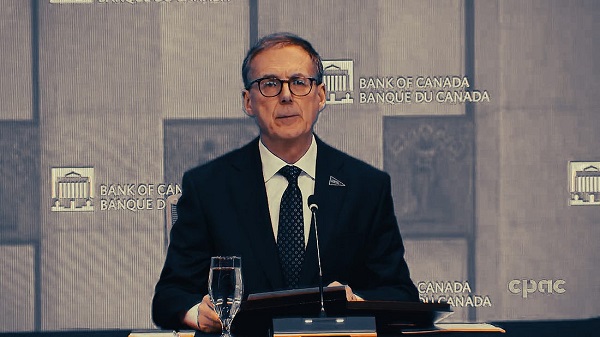Business
Data Center Demand: The Biden-Harris Energy Transition Will Just Have To Wait

A nuclear power plant
From the Daily Caller News Foundation
Google has made big news in the energy space over the past week, and all of it conflicts with the Harris-Biden goals of a glorious future powered entirely by windmills, solar arrays and presumably some combination of Unicorn fur and fairy dust.
Last week, the Washington Post ran a major story detailing the fact that Nebraska’s Omaha Public Power District (OPPD) will be forced to keep two coal-fired power generation units running for years longer than previously planned to accommodate the electricity needs of new data centers being built in the area by Google and Meta. Originally scheduled to be shuttered at the end of 2023, the units will now remain active through 2026, and local residents and activists expressed skepticism they will be shut down even then.
“A promise was made, and then they broke it,” the Post quotes local resident Cheryl Weston as saying. “The tech companies bear responsibility for this. The coal plant is still open because they need all this energy to grow.”
Well, yes, they do. Given the way supposed deadlines and promises related to this government-forced energy transition have been consistently extended and broken, Weston’s skepticism seems well-grounded.
By now, most everyone is aware of the enormous new demand the proliferation of data centers is placing on the U.S. regional power grids. The new demand from Big Tech is being added to an electric system already strained by huge demands from crypto mining, EV charging and general population growth and economic expansion.
This demand growth threatens to overwhelm the ability of power companies to build new electric generating capacity rapidly enough to keep up. This is especially true for companies operating in areas that restrict such new generating capacity to be “green,” i.e. intermittent wind and solar.
In the Washington Post’s story, the OPPD attributes the need to keep the coal units running on the slow development of anticipated new wind and solar capacity. But that avoids the reality that these data centers and other big power demand hogs require reliable generation, 24 hours a day, 7 days every week. The limitations of intermittent, weather-dependent wind and solar, even when combined with current backup battery tech, leaves companies like Google and Meta demanding more reliable, consistent generation.
This reality is not limited to the Omaha area. On Monday, the Wall Street Journal reported that Google and parent company Alphabet are also backing a new company engaged in the development of a new generation of modular nuclear reactors as a means of securing its future electricity supplies. In a deal with nuclear startup Kairos Power, Google commits to buying power from seven Kairos reactors when they go live in the coming years.
“The end goal here is 24/7, carbon-free energy,” Google/Alphabet senior director for energy and climate Michael Terrell said. “We feel like in order to meet goals around round-the-clock clean energy, you’re going to need to have technologies that complement wind and solar and lithium-ion storage.”
These developments involving Google and Meta come on the heels of other recent stories detailing efforts by tech giants to secure their future power needs. In early October, Constellation Energy announced it will reactivate its Three Mile Island nuclear plant in Pennsylvania to feed the power needs of nearby data centers under development by Microsoft. Constellation announced a similar deal in July to power data centers owned by Amazon from other nuclear facilities it operates.
The securing of their own power supplies could well become a requirement for big tech companies in some regions, as regulators and grid managers become increasingly concerned about their potential to drain regional grids of needed capacity to keep the lights on for everyone else. Bloomberg recently reported on comments by Thomas Gleeson, Chairman of the Public Utilities Commission of Texas, warning data center developers they should plan to provide at least part of their own power needs if they wish to connect to the grid in a timely fashion.
What it all means is that demand for reliable, 24/7 power supplied by nuclear, natural gas and even coal is going to continue rising for the foreseeable future. The glorious energy transition will just have to wait for reality.
David Blackmon is an energy writer and consultant based in Texas. He spent 40 years in the oil and gas business, where he specialized in public policy and communications.
Business
“We have a deal”: Trump, Xi strike breakthrough on trade and fentanyl

President Trump declared “we have a deal” Thursday after meeting with Chinese President Xi Jinping in South Korea, describing their nearly two-hour summit as “a 12 out of 10.” Speaking aboard Air Force One, Trump told reporters the two leaders reached a sweeping agreement to stabilize trade relations and address the deadly fentanyl crisis. “We have a deal. Now, every year we will renegotiate the deal,” Trump said. “But I think the deal will go on for a long time.”
According to Trump, Xi agreed to suspend for one year China’s export restrictions on products made with rare-earth and critical minerals — materials essential to the production of semiconductors, batteries, and high-tech magnets. “There’s no roadblock at all on rare earth,” he said. “It’s a one-year deal that I think will be very routinely extended.” In exchange, Trump said the U.S. would lower the average tariff rate on Chinese imports from 57.6% to 47.6%. Trump emphasized that Xi also committed to intensifying China’s crackdown on fentanyl exports, which have been a major driver of overdose deaths in the United States. “We agreed he’s going to work very hard to stop the flow,” Trump said. “I think you’re going to see a big difference.”
Beijing also pledged to resume “tremendous” purchases of American soybeans, reversing its earlier retaliatory halt. In a Truth Social post later Thursday, Trump said China had additionally agreed to begin purchasing U.S. oil and gas, noting that “a very large-scale transaction may take place concerning the purchase of oil and gas from the Great State of Alaska.” The president confirmed that Taiwan was not discussed during the meeting but said both sides talked about working together to bring an end to the war in Ukraine. “We didn’t really discuss the Russian oil,” he added. “We discussed working together to see if we can get that war finished.”
The meeting, held at a South Korean air base, marked the first in-person exchange between Trump and Xi since his return to the White House. The two leaders greeted each other warmly, with Xi telling Trump, “Great pleasure to see you again.” Xi praised Trump’s leadership, saying, “China’s development goes hand in hand with your vision to make America great again,” and added that the two nations “are fully able to help each other succeed and prosper together.” Much of Thursday’s agreement builds upon a framework negotiated earlier this month in Kuala Lumpur between U.S. and Chinese trade teams.
Trump said he plans to visit China in April, calling the meeting “amazing” and “an outstanding group of decisions.” He did not say whether the pending TikTok deal was discussed. The renewed cooperation on fentanyl follows years of tension over China’s role in the U.S. opioid crisis. The CDC reports the drug has killed nearly 330,000 Americans in the past five years — roughly one in every 1,000 people. Trump has long pressed Beijing to stop the export of precursor chemicals used to make fentanyl, arguing the problem is both moral and economic. “They make $100 million selling fentanyl into our country,” Trump said last week. “They lose $100 billion with the 20% tariff. It’s not a good business proposition.”
Trump left Thursday’s summit expressing confidence that the new arrangement marked a major step forward. “On the scale of 0 to 10, with 10 being the best, I would say the meeting was a 12,” he said. “It was an amazing meeting — and I think this deal will go on for a long time.”
Business
Canada’s attack on religious charities makes no fiscal sense

This article supplied by Troy Media.
 By Lee Harding
By Lee Harding
Ottawa is targeting the charitable tax status of faith-based groups. The fallout could hit every Canadian community
The possibility that Canadian religious organizations will lose their charitable status has never been more real.
On Jan. 6, Parliament’s Standing Committee on Finance recommended numerous changes, including Recommendation 430: “Amend the Income Tax Act to define a charity, which would remove the privileged status of ‘advancement of religion’ as a
charitable purpose, meaning faith-based organizations could lose access to tax benefits.”
The B.C. Humanist Association, a secular advocacy group, has long advocated for removing religion as a stand-alone charitable purpose. That idea is reflected in Recommendation 430. Before adopting such a proposal, the finance committee should have reviewed a study published last November by Cardus, a Canadian think tank focused on faith, civil society and public policy.
The Cardus study examined 64 Christian congregations in various provinces to assess the socio-economic value of their impact. It suggested that congregations make an $18.2-billion socioeconomic contribution to Canadian society, well in excess of tax exemptions and rebates equal to $1.7 billion. The net positive result of $16.5 billion—a “halo effect”—is more than 10
times the value of the tax exemptions.
The implications are clear: society will be worse off if the loss of religious charitable status leads to a drop of more than 10 per cent in donations to affected charities. Why risk it?
When congregations unravel, society follows in ways that go beyond mere economics. As Cardus explains, churches often provide space, often at no cost or below-market rates, for cultural and artistic events, recreation and sports, education, social services and other community activities. They also deliver addiction recovery, counselling and mental-health support, child care, refugee sponsorship and settlement services for newcomers, education and food banks.
Whether institutionally or personally, helping people is often an integral extension of religious belief. A 2012 Statistics Canada study found that the 14 per cent of Canadians who attend church weekly offer 29 per cent of the nation’s volunteer hours and provide 45 per cent of all charitable donations.
No party has explicitly endorsed removing charitable status for religion. But the Bloc Québécois, NDP and Liberals dominated the committee recommendation to remove religion as a charitable purpose. The Conservative Party, which held a minority on the committee, was alone in opposing it outright.
Randy Crosson, executive director of Freedoms Advocate, is organizing a national pushback. In a speech given Oct. 1 to the Regina Civic Awareness and Action Network, he said the recommendation was a “shot across the bow” to gauge public reaction.
“This isn’t just about donors losing tax receipts. It’s about churches losing buildings, staff losing jobs, and ministries being forced to shut down due to reduced donations. This is a direct threat to the future of faith in Canada, and it’s happening fast,” Crosson explained in an online video.
Crosson said religion enjoys less participation and more opposition than in previous decades. Church attendance has slumped since the pandemic, and some Canadians continue to criticize churches for their historical involvement in residential schools.
The Quebec government has also pursued a strongly secular approach to public policy. In 2019, Quebec’s Bill 21 used the notwithstanding clause of the Constitution to ban public servants from wearing religious symbols, such as hijabs, turbans or crucifixes. In August, Quebec’s secularism minister, Jean François Roberge, said that the “proliferation of street prayer is a serious and sensitive issue” and promised to bring legislation to ban it.
That’s why Crosson is urging religious leaders to launch a three-part campaign.
“First, an open letter drafted with legal and faith leaders to show government and the media the real value of the church in Canadian society. Second, mass signatures. We need churches, leaders and individuals to sign the letter,” Crosson says in a video appeal. “And third, a national documentary based on the open letter. This will be released publicly and spread through churches, media and social platforms.”
The Frontier Centre for Public Policy has also come out publicly against the proposed change. A report by Senior Fellow Pierre Gilbert entitled Revoking the Charitable Status for the Advancement of Religion: A Critical Assessment makes a case for the status quo, pointing to benefits such as those mentioned above.
For now, at least, the idea is on hold. A published email response by Liberal MP Karina Gould, the chair of the House of Commons’ Standing Committee on Finance, said the charitable status of faith-driven non-profits will not be revoked in the Nov. 4 budget.
That’s good news. Faith is a big motivator of charity, and it’s hard to see how a less charitable society is a better one. If governments want to balance the books, they should rein in spending, not put faith-based charities at risk.
Lee Harding is a research fellow for the Frontier Centre for Public Policy.
Troy Media empowers Canadian community news outlets by providing independent, insightful analysis and commentary. Our mission is to support local media in helping Canadians stay informed and engaged by delivering reliable content that strengthens community connections and deepens understanding across the country
-

 Business1 day ago
Business1 day agoCanada heading into economic turbulence: The USMCA is finished and Canadian elbows may have started the real fight
-

 Internet2 days ago
Internet2 days agoMusk launches Grokipedia to break Wikipedia’s information monopoly
-

 Business2 days ago
Business2 days agoBill Gates walks away from the climate cult
-

 National1 day ago
National1 day agoCanadian MPs order ethics investigation into Mark Carney’s corporate interests
-

 National1 day ago
National1 day agoCanada’s NDP is now calling women ‘non-males’
-

 Business1 day ago
Business1 day agoFord’s Liquor War Trades Economic Freedom For Political Theatre
-

 Banks1 day ago
Banks1 day agoBank of Canada Cuts Rates to 2.25%, Warns of Structural Economic Damage
-

 Health1 day ago
Health1 day agoLeslyn Lewis urges Canadians to fight WHO pandemic treaty before it’s legally binding









